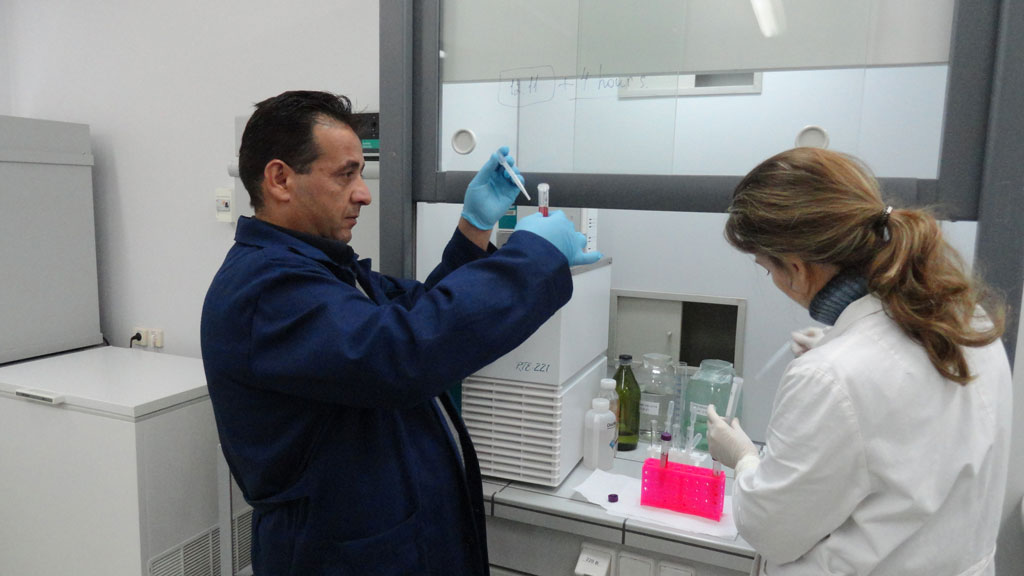Topics of trainings
The Training Centre provides the training on the study of the impact of the severe accidents connected with the radioactive contamination on the ecosystems on the example of the Chornobyl Exclusion Zone, as well as on the issue of planning preventive measures against spread of radionuclides through the water ways and wildlife and on the minimization of the radiological consequences in the case of the potential accidental release.
The Training Center offers standard training programs and programs prepared according to the Client’s order.
The duration of the standard program of the training course is two weeks. Under the training results, a certificate of a standard pattern is issued.
Examples of the standard training programs are as follows:
Topic 1. “Method of determination of Sr90 activity concentration in water samples using Sr-resin selective sorbent”
The training course is targeted at study of the method of the radiochemical analysis of Sr90 in water samples.
Theoretical part:
- Fundamental principles of extraction chromatography.
- Technical characteristics of the modern ion-exchange Sr-resin.
- Measurement principles of radioactivity at the liquid scintillation spectrometer (LSS). Study of the technical characteristics of the contemporary LSS.
- Measurement principles of radioactivity at the gas-flow proportional counter (GFPC). Study of the technical characteristics of the contemporary GFPC.
Practical part:
- Liquid media sampling.
- Preparation for operation of measurement and auxiliary equipment.
- Preparation of reagents and metals solutions, in particular Strontium and Yttrium carriers, as well as their intra-laboratory certification.
- Determination of counting efficiency of beta-particles for GFPC and LSS.
- Analysis:
- preliminary preparation of the water sample;
- Sr90 concentration from the water sample along with its stable carrier;/li>
- Sr90 purification from other radionuclides and attendant macroelements by the method of selective ion-exchange chromatography using the ion-exchange Sr-resin.
- preparation of Sr90 counting sample;
- determination of the chemical yield coefficient;
- measurement of the rate of the beta-particles count at GFPC and LSS from the prepared counting sample;
- analysis of the measurement results of Sr90 activity concentration for the results received at GFPC;
- analysis of the measurement results of Sr90 activity concentration for the results received at LSS.
- Preparation of the measurement records and control of measurement quality.
Topic 2. “Cytogenetic methods in biodosimentry”

The cytogenetic methods of the study of peripheral blood lymphocytes are informative for the biological indication of the absorbed dose of radiation. The basic principle of the cytogenetic biodosimeter is to determine the frequency of the chromosomal aberrations in the metaphase of the first mitosis of lymphocytes blood culture and the ratio of results in vivo to the “dose-effect” calibrated curve constructed in vitro for this indicator under the condition of exposure to the certain energy in the given dose range.
Training areas:
- Method of fluorescent hybridization in situ (FISH).
- Premature chromosomes condensation.
- Micronuclear analysis (count of micronuclei in the lymphocytes).
- Analysis of dicentrics and methods of differential coloring of chromosomes G-, R- (T-), C-, H- (Q-) -bending.
- Assessment of radioactive contamination and impact of ionizing radiation on the organism of the mice of the Chornobyl Exclusion Zone.


